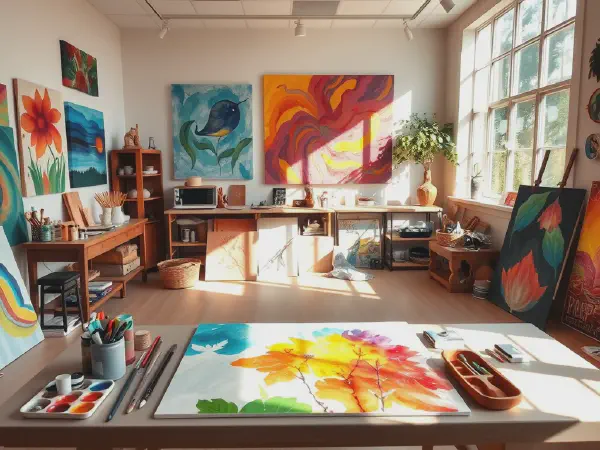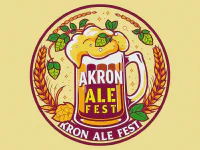Exploring Art Therapy in Addiction Recovery in Columbus

Art Therapy in Addiction Recovery in Columbus
Art Therapy in Addiction Recovery in Columbus offers individuals a unique avenue for healing by using creative expression as a therapeutic tool. This approach allows people to explore their emotions, reduce anxiety, and develop coping mechanisms that can aid in their recovery journey. In a city that has seen a growing understanding of mental health and addiction treatment, art therapy has emerged as a powerful resource for many.
Throughout Columbus, various institutions and therapists are integrating Art Therapy in Addiction Recovery, emphasizing its importance in addressing not just the symptoms of addiction but also the underlying emotional traumas. By engaging in artistic activities, individuals can communicate feelings that may be too difficult to articulate verbally, thus fostering a deeper connection to their recovery process. This holistic approach aids in bridging the gap between traditional therapy and creative expression, making healing more accessible and relatable to those in need.
The significance of Art Therapy in Addiction Recovery in Columbus extends beyond individual therapy sessions. Group art therapy sessions promote a sense of community and support among participants, offering a safe space to share experiences and express struggles. This collective experience not only encourages bonding but also helps individuals realize that they are not alone in their battles. By witnessing others' journeys, participants gain both inspiration and the understanding that recovery is possible.
In exploring innovative recovery methods, I found that Art Therapy Used to Enhance Steps One, Two and Three of a Twelve-step Recovery Program for Addictions Treatment significantly improves emotional healing.
Moreover, Art Therapy in Addiction Recovery in Columbus has been recognized for its adaptability to diverse populations. Whether through drawing, painting, or other creative mediums, the therapy meets individuals where they are at in their recovery process. It facilitates personal growth and self-discovery, allowing people to redefine their identities outside of addiction. Many have found that engaging in art provides clarity and relief, making it an essential component of their treatment.
As Columbus continues to expand its mental health resources, the role of Art Therapy in Addiction Recovery is becoming increasingly evident. Local programs are dedicated to introducing art as a healing practice, demonstrating its benefits for emotional regulation and personal expression. Through the combined efforts of therapists, institutions, and the community, art therapy is cultivating a supportive environment for those in recovery, marking a shift towards more inclusive and comprehensive addiction treatment strategies.
Benefits of Art Therapy in Recovery
One of the most significant benefits of Art Therapy in Recovery is emotional expression through art. For many individuals struggling with addiction, articulating feelings can be overwhelming. Art serves as a non-verbal outlet, allowing for the exploration and expression of deeply rooted emotions without the constraints of language. This process can be liberating and lead to greater self-awareness and understanding of one’s feelings and triggers.
Furthermore, Art Therapy is a potent tool for stress relief and coping mechanisms. Engaging in creative activities can significantly reduce anxiety levels and help individuals manage stress more effectively. The repetitive and mindful nature of artistic creation promotes a state of relaxation, thus reducing the likelihood of relapse by providing healthier coping strategies to deal with challenges and triggers.
Building self-esteem through creativity is another vital aspect of Art Therapy in Recovery. Many people who have experienced addiction struggle with feelings of worthlessness or inadequacy. Creating art allows individuals to take pride in their accomplishments, no matter how small. This process can enhance their self-image and provide a sense of purpose, which is crucial for long-term recovery.
Art Therapy also enhances communication skills. Individuals in recovery often experience difficulty in expressing themselves verbally, especially regarding their struggles with addiction. Art offers a visual language that allows them to convey their feelings, thoughts, and experiences more comfortably. This improvement in communication skills not only aids in therapy but also translates into better relationships in everyday life.
Lastly, fostering mindfulness and presence is a key benefit of Art Therapy in Recovery. The act of creating art requires focus and attention, encouraging individuals to be present in the moment. This mindfulness practice helps reduce rumination and anxiety, allowing for a clearer mind and a more positive outlook on life. It's an essential practice that promotes overall mental well-being, aligning perfectly with the goals of addiction recovery.
Techniques Used in Art Therapy
Drawing and painting for emotional release is one of the foundational techniques utilized in Art Therapy. These mediums allow individuals to represent their feelings visually, which can be cathartic. The act of putting pencil to paper or brush to canvas can provide immediate emotional relief and clarity, making art an essential tool in the recovery process.
Sculpting is another technique that can be particularly impactful, as it explores the physical representation of feelings. Through three-dimensional forms, individuals can embody their emotions in a tangible way, offering them the opportunity to confront issues in a novel format. This kinesthetic approach can be especially soothing for those who struggle with verbal communication.
Collage-making is a technique that facilitates identity exploration. By assembling images and words from various sources, participants can create a visual representation of their inner world. This process is instrumental in helping individuals uncover aspects of their identity that may have been overshadowed by addiction, promoting self-discovery and acceptance.
Art journaling for self-reflection is another effective technique employed in Art Therapy. Participants can combine writing and artistic expression in a journal format, allowing for deeper introspection and an ongoing record of their recovery journey. This practice not only enhances self-awareness but also provides a means to track progress and challenges over time.
Lastly, group art projects are utilized to build a sense of community among participants. Collaborating on creative endeavors fosters connection and support among individuals in recovery. Such projects can break down feelings of isolation and promote a shared experience, encouraging participants to learn from one another and build lasting relationships that support their recovery journey.
Success Stories and Case Studies
Personal testimonials from Columbus residents illustrate the profound impact of Art Therapy in Addiction Recovery. Many individuals have shared how engaging in art allowed them to process their emotions and experiences without judgment. One resident expressed, "Through creating art, I found a voice to express what I couldn't say. It has been a lifeline for me in my recovery journey." These stories highlight the transformative power of creativity in their lives.
Professional insights from therapists reinforce the effectiveness of Art Therapy. Many counselors and therapists working in Columbus have witnessed firsthand the positive changes in their clients' lives after participating in art therapy programs. One therapist noted, "Seeing someone connect with their feelings through art is incredible. It opens doors to communication and healing that traditional talk therapy sometimes cannot achieve."
Before and after art therapy experiences reveal significant transformations for many individuals. Clients often come in withdrawn and struggling but leave filled with newfound confidence and self-awareness after engaging with their creative sides. These visible changes emphasize the importance of integrating art therapy into addiction treatment plans.
The community impact of art therapy programs in Columbus cannot be understated. These programs have not only helped individuals but have also fostered a greater understanding of mental health issues within the community. Workshops and gallery shows often showcase participants' artwork, allowing locals to engage with and support those in recovery, thus creating a more inclusive environment.
Long-term recovery outcomes linked to art therapy are promising. Participants frequently report sustained improvements in mental health and overall well-being after completing art therapy programs. Many have noted that art therapy provided them with tools that they continue to utilize long after their sessions, emphasizing its lasting influence on their recovery journeys.
Art Therapy Programs in Columbus
Columbus offers a variety of Art Therapy Programs that cater to different needs and demographics. Local art therapy centers provide structured programs aimed at individuals struggling with addiction, allowing them to engage with art in a supportive environment. Organizations focus on creating a safe space for healing, fostering creativity, and promoting emotional discovery.
Qualifications of art therapists in Columbus adhere to professional standards, ensuring that individuals receive high-quality care. Many art therapists hold advanced degrees and certifications in both art therapy and counseling or social work. This rigorous training equips them with the skills to guide individuals through their recovery journeys effectively.
The types of programs offered in Columbus are diverse, ranging from individual therapy sessions to group programs and workshops. These programs are designed to accommodate various needs, ensuring that every participant has access to the therapeutic benefits of art. Some centers also host community events that promote mutual support and collaboration among individuals in recovery.
Connecting with local support groups is an integral aspect of Art Therapy Programs in Columbus. Many centers encourage participants to attend support group meetings alongside their art therapy sessions, fostering a well-rounded recovery experience. This connection provides individuals with a network of support that extends beyond therapy, reinforcing their commitment to sobriety.
Lastly, funding and resources for affordable therapy are available to ensure that Art Therapy is accessible to those in need. Several local organizations and grants exist to provide financial assistance, making it possible for individuals from diverse socioeconomic backgrounds to benefit from art therapy programs, thus promoting an inclusive approach to recovery.
Research and Evidence on Art Therapy
Research shows that Art Therapy can be highly effective in addiction recovery. Various studies have demonstrated its ability to reduce symptoms of anxiety and depression, promote emotional regulation, and encourage self-expression among individuals battling addiction. As a result, art therapy is increasingly recognized as a valuable component of comprehensive addiction treatment.
Comparative analysis with traditional therapies indicates that art therapy offers unique benefits that may not be achieved through verbal or conventional therapy alone. Many individuals find that the creative process helps them engage in their recovery more fully, making it an essential complement to standard therapeutic practices.
Latest research findings from Columbus reveal a growing interest in the efficacy of art therapy within the local community. Several studies conducted by local universities and health organizations are exploring the specific outcomes linked to art therapy in addiction recovery, further establishing its credibility as a viable treatment option.
Expert opinions on art therapy are overwhelmingly positive. Mental health professionals in Columbus emphasize the importance of integrating creative therapies into addiction recovery programs, noting that art therapy allows individuals to explore their emotions and experiences in a non-threatening manner. Experts often recommend art therapy as an adjunct to traditional therapies for holistic treatment.
Future trends in art therapy and addiction recovery point towards an increased emphasis on interdisciplinary approaches that incorporate various therapeutic modalities. As the recognition of art therapy continues to grow, more programs may emerge that integrate art with other healing practices, creating more comprehensive treatment plans that address the diverse needs of those in recovery.
